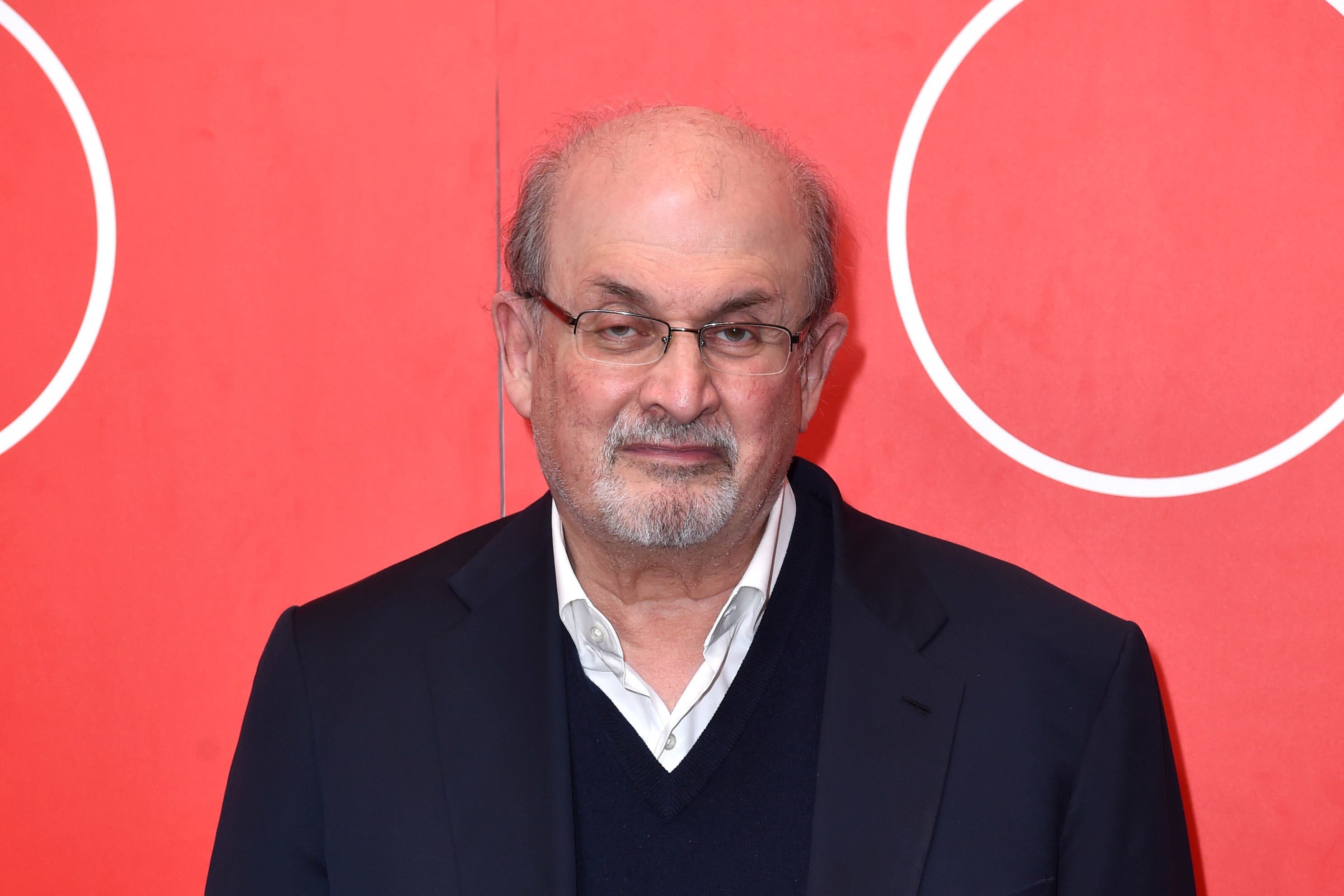Sir Salman Rushdie feels ‘gratitude’ in first interview since attack last year
The Indian-born British author suffered severe, life-changing injuries, including losing sight in one eye, following the attack in New York.

Your support helps us to tell the story
From reproductive rights to climate change to Big Tech, The Independent is on the ground when the story is developing. Whether it's investigating the financials of Elon Musk's pro-Trump PAC or producing our latest documentary, 'The A Word', which shines a light on the American women fighting for reproductive rights, we know how important it is to parse out the facts from the messaging.
At such a critical moment in US history, we need reporters on the ground. Your donation allows us to keep sending journalists to speak to both sides of the story.
The Independent is trusted by Americans across the entire political spectrum. And unlike many other quality news outlets, we choose not to lock Americans out of our reporting and analysis with paywalls. We believe quality journalism should be available to everyone, paid for by those who can afford it.
Your support makes all the difference.Sir Salman Rushdie has said his “overwhelming feeling is gratitude” in his first interview since he was repeatedly stabbed last year during a literary event in New York.
The 75-year-old Indian-born British author suffered severe, life-changing injuries including losing sight in one eye following the violent attack which occurred ahead of him delivering a lecture at the Chautauqua Institution in August.
The incident was not the first time Sir Salman’s life has come under threat as in 1989 Iran’s former ruler Ayatollah Khomeini issued a fatwa calling for his death after the publication of his novel The Satanic Verses, which some Muslims consider blasphemous.
In a new interview with The New Yorker, which is accompanied by a picture of the author, Sir Salman reflected on the support he received from first responders during the “colossal attack” and following the event.
He said: “It’s very nice that everybody was so moved by this, you know? I had never thought about how people would react if I was assassinated, or almost assassinated.”
Sir Salman continued: “I’m lucky. What I really want to say is that my main overwhelming feeling is gratitude.”
The Booker Prize-winning author said he was grateful to the medical professionals who treated him at the scene and in hospital in the following weeks, adding: “At some point, I’d like to go back up there and say thank you.”
He also praised his sons Zafar and Milan and his wife, the American poet Rachel Eliza Griffiths, saying: “She just took over everything, as well as having the emotional burden of my almost being killed.”
During the attack, Sir Salman sustained serious wounds to his neck, face, hand and abdomen which took away the sight in one eye and left his hand incapacitated at the time.
After months of recovery, Sir Salman said he is “not so bad” considering the severity of the incident.
“The big injuries are healed, essentially. I have feeling in my thumb and index finger and in the bottom half of the palm”, he said.
“I’m doing a lot of hand therapy, and I’m told that I’m doing very well.”
He added that he was no longer able to type “very well” due to the lack of feeling in the fingertips of his injured hand, but also due to having a mental block.
“There is such a thing as PTSD (Post-Traumatic Stress Disorder), you know. I’ve found it very, very difficult to write”, he said.
“I sit down to write, and nothing happens. I write, but it’s a combination of blankness and junk, stuff that I write and that I delete the next day. I’m not out of that forest yet, really.”
He continued: “I’ve simply never allowed myself to use the phrase ‘writer’s block’. Everybody has a moment when there’s nothing in your head. And you think: ‘Oh, well, there’s never going to be anything.’
“One of the things about being 75 and having written 21 books is that you know that, if you keep at it, something will come.”
His alleged attacker Hadi Matar, who was 24 years old at the time, has made multiple appearances at Chautauqua County Court in New York, having pleaded not guilty to attempted murder and assault charges following the incident.
Sir Salman told The New Yorker he blames Matar for the attack and when asked if he feels he was let down by security at Chautauqua, he replied: “I’ve tried very hard over these years to avoid recrimination and bitterness.
“I just think it’s not a good look. One of the ways I’ve dealt with this whole thing is to look forward and not backwards. What happens tomorrow is more important than what happened yesterday.”